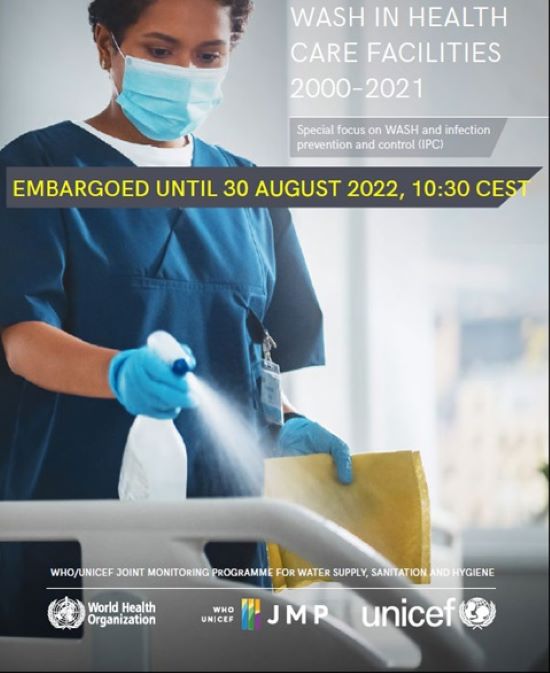
The WHO/UNICEF Joint Monitoring Programme (JMP) recently published a report entitled Progress on WASH in health care facilities 2000–2021: special focus on WASH and infection prevention and control during World Water Week (23 August to 1 September).
The report says that half of health care facilities worldwide lack basic hygiene services with water and soap or alcohol-based hand rub where patients receive care and or in toilets at these facilities. For the first time, the report has established a global baseline for hygiene services in health care facilities, including for access at points of care as well as toilets.
The definition of WASH (water, sanitation and hygiene) used in the global monitoring of health care facilities includes not only water supply, sanitation and hand hygiene, but also health care waste management and environmental cleaning.
WHO has been supporting countries in monitoring and taking steps to improve WASH services in health care facilities in the Eastern Mediterranean Region.
The regional WHO WASH team prepared a regional snapshot of WASH in health care facilities in the Eastern Mediterranean Region.
The increase in data coverage in the Region has provided enough data to produce regional estimates for all five WASH elements (water, sanitation, hygiene, waste management, environmental cleaning) in health care facilities for the first time. Furthermore, the Region is the only region where enough countries with national data on environmental cleaning were available to calculate a regional estimate for basic environmental cleaning services.
However, notwithstanding the achievements accomplished in 2022, many gaps remain. The findings highlight that additional work is needed to improve WASH services in health care facilities in the Region to accelerate implementation of the 2019 World Health Assembly resolution WHA.72.7 on WASH in health care facilities.
The following is a summary of the main findings on WASH in health care facilities in the Eastern Mediterranean Region in 2021 (with global rates in brackets).
73% of health care facilities had basic water services, meaning water was available from an improved source on the premises. Iimproved water sources include piped water, boreholes or tubewells, protected dug wells, protected springs, and packaged or delivered water. (Globally 78%)
Only 29% of health care facilities had basic sanitation services (with usable improved sanitation facilities, including at least one toilet dedicated for staff, at least one sex-separated toilet with menstrual hygiene facilities, and at least one toilet accessible for people with limited mobility). An improved sanitation facility is defined as one that hygienically separates human excreta from human contact. (No global estimate available)
59% of health care facilities had basic hand hygiene services, meaning that functional hand hygiene facilities were available at points of care, and within five metres of toilets. (Globally 51%)
Only 23% of health care facilities had basic health care waste management services, where waste is safely segregated, treated and disposed. (No global estimate available)
36% of health care facilities had basic environmental cleaning services, meaning that cleaning protocols were available and that staff with cleaning responsibilities had all received training. (No global estimate available)
The regional WASH team will continue to support countries towards improving WASH services in health care facilities in the Region.


